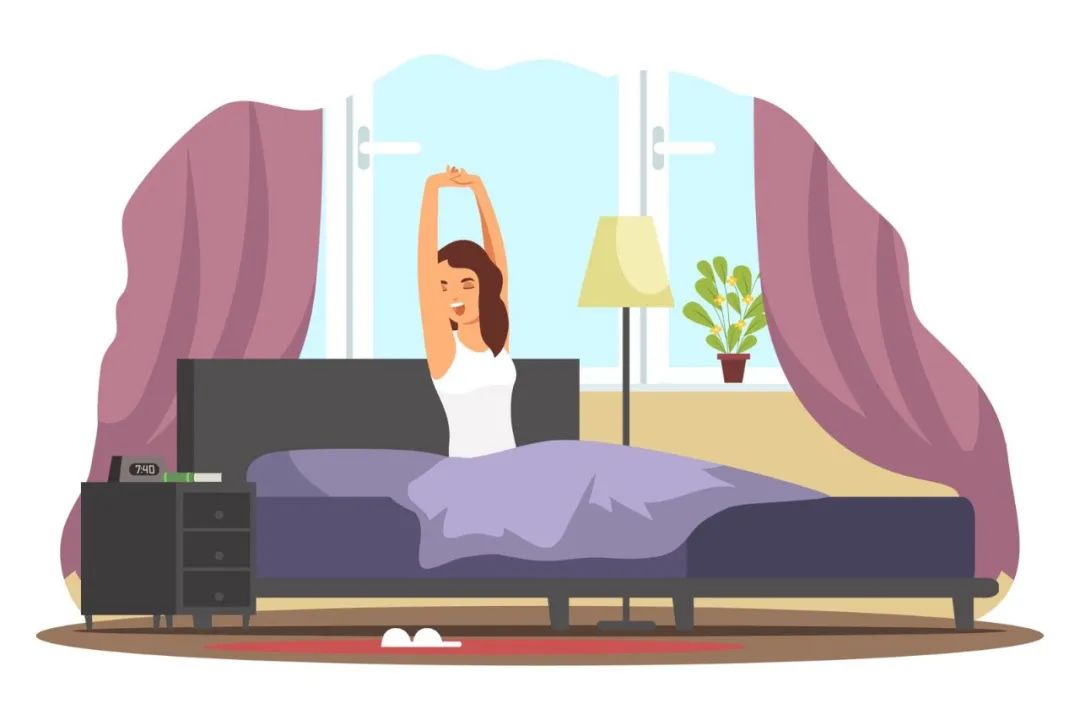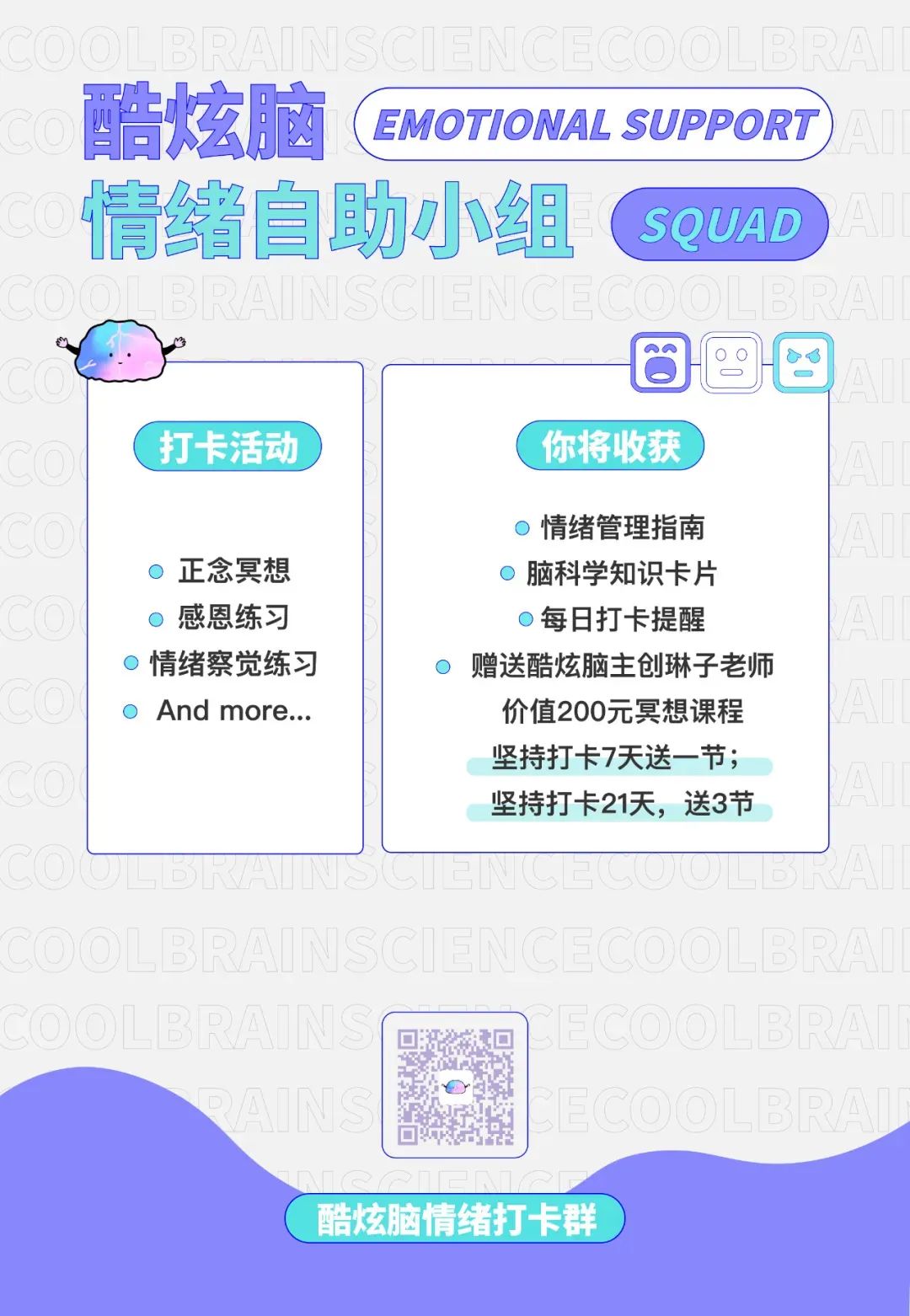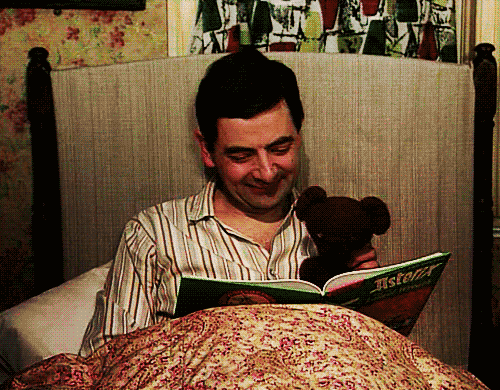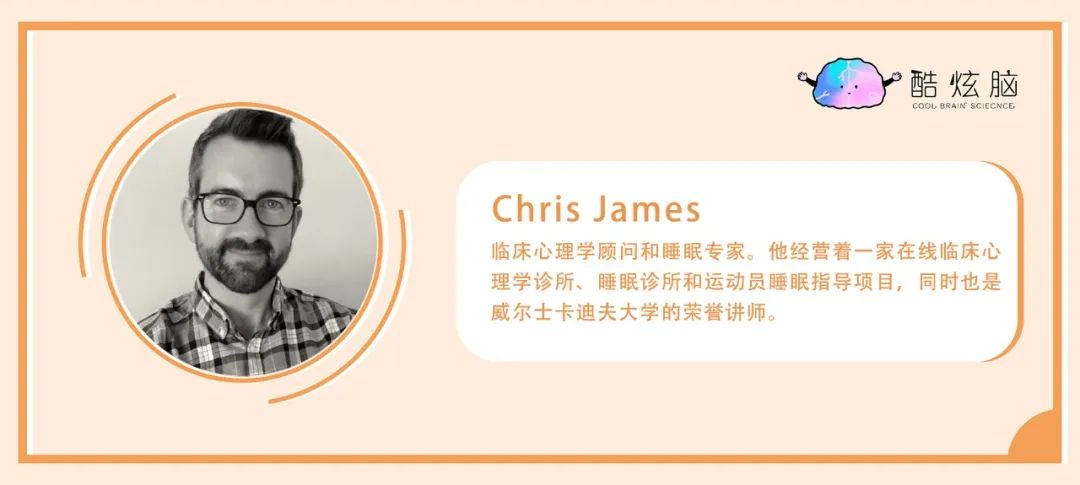The more you want to sleep, the more you can't sleep. How can you break this vicious circle?
Author:Cool brain Time:2022.07.17


Via: freepik
The following is the audio of the full text of Miss Sister
Author | Christ James
Translation | Cotton Bear
Reward | Caroline
Grade -Cool Brain Creative
Reading | Hu En
Artist | Old carving worm
Edit | yj
Cool brain emotion self -service punching team is established! Participate in daily emotional awareness punching activities, you can get the meditation course of Cool Brain Main Sister Linzi ~
The original intention of this group was:
In order to help, I always feel that life is very weak, or I feel more mournful, happy, and friends with emotional distress to find the breakthrough of life and move towards a more positive attitude towards life. Based on the concept of positive psychology, the members of the group lead the team members to better promote their own changes through daily check -in.
You will gain:
Daily check -in reminder and free check -in template
Give away the meditation course of Mr. Linzi, the main creative class, you can get 1 free course for 7 consecutive days
You can get 3 free courses for 21 days in a row for 21 consecutive days
Establishing brain science knowledge card sharing
Meet friends who want to activate the "circuit" like you and you want to activate your life like you.
In this group, there is no forcibly chicken blood, no judgment of personal state, everyone just observes themselves in it and complete daily practice and records.
If you also hope that in the second half of 2022, bid farewell to yourself who is always at unclear, blame, and anxious, and use a more dynamic and energy state to expand a colorful life, then you are welcome to join this group.

"Sleeping should be easy, right? Why can't I close my eyes and fall asleep like others?" This is a question I have heard many times in the sleeping clinic.
Most of us will feel uncomfortable after not sleeping overnight: we will feel groggy, tired, and irritable -generally speaking, we will feel that we do not have enough motivation, or we feel that we are "" "Over a day in the fog. Insomnia patients are no longer familiar with these symptoms.
Those who have experienced insomnia usually describe it as a condition that weakens, painful, and extremely frustrated, which will also affect all aspects of their lives. Just one night without sleeping will bring us a lot of negative effects, so for those who have not slept well, this is like a torture.
"Sleeping should be easy, right? Why can't I close my eyes and fall asleep like others?" This is a question I have heard many times in the sleeping clinic. Insomnia is a very cruel situation. Extreme desire for sleep and more and more frustrations brought by sleeping will actually make you more difficult to fall asleep. Breaking this vicious circle is one of the keys to overcoming insomnia.
Ensuring good sleep is essential for physical and mental health. If sleep is healthy, it can help the body charging, stimulate its natural healing ability, and help the brain to deal with one day. Although the exact time required varies from person to person, most adults need 7 to 9 hours of sleep to feel sufficient rest. People with insomnia often report that sleep is insufficient; some people say they only sleep for 5 to 6 hours. There are also some people who sleep more, but the sleep of insomnia patients is usually highly scattered -in other words, they sleep well, and they are in a sober state for a long time during sleep.
In a broad sense, insomnia includes it difficult to sleep and/or keep sleep, at least three nights a week. For those who have chronic (not short -term) insomnia, this situation will last at least three months. These sleep difficulties are also accompanied by symptoms that can occur during the day, such as fatigue, poor memory, inadequate attention or irritability. It is important to attribute sleep problems as insomnia, these problems must not be caused by external factors such as night shifts, late -night gatherings or noisy neighbors. Moreover, these symptoms cannot be explained by other conditions that cause poor sleep, such as rhythm disorders or sleep apnea.
Insomnia will seriously affect a person's quality of life and daily functions. It affects the motivation of work performance, interpersonal relationships, exercise, and maintaining a healthy diet. People with insomnia often stop doing what they like to do because they no longer have the energy or motivation to do these things. Therefore, they often feel unhappy, weak and trapped.

Via: giphy
Insomnia is common, but it can be cured
It is estimated that about one -third of ordinary people have experienced one or more insomnia symptoms, and about 10%of people meet the standards of chronic insomnia. Insomnia is one of the most common diseases. Although insomnia is common, it is still a challenge for various reasons, so many people have not been treated.
Many health professionals have not fully understood insomnia -research found that medical school students only received average 2.5 hours of sleep education -and signs of insomnia were often ignored or minimized. In addition, relatively few people really seek help to solve their sleep problems. People don't know where to ask for help. Sleep as a professional field is not regulated, which means that anyone can call themselves "sleep experts", even if they do not have any clinical training. People with insomnia are often anxious to seek solutions, which makes them more vulnerable to the impact of "sleep problems" quickly.
As a clinical psychologist who treats insomnia, according to my experience, when someone contacted me, they usually tried various supplements, remedial measures and treatment methods from various unqualified people. They may also go to see the general doctor and prescribed sleeping pills. Although sleeping pills can provide some short -term relief, they do not solve the potential causes of insomnia, and there is a risk of dependence. Therefore, general doctors often only prescribe a short time of sleeping pills. Insomnia patients often feel pessimistic about their recovery, and they are skeptical of any further sleep advice. Fortunately, there are still some reliable scientific evidence to support very effective ways to treat insomnia. The authoritative person who is studying sleep disorders is considered to be a "gold standard" therapy for the treatment of insomnia. CBT-I is a psychotherapy that focuses on behavior and thought in long-term sleep problems.
Insomnia is usually due to the pressure of a period of time or changes in daily life -due to diseases, children, changing jobs, interpersonal relationships, or hurting the pain of funerals -sleep disorders. This will affect our views on sleep in turn, so we start to change our sleep behavior and try to solve sleep problems: a lot of caffeine, bed early, alcohol, taking sleep supplements, sleeping on the sofa, waiting for Wait. Over time, these changes will actually make things worse. In CBT, we call them "maintenance factor" because they can cause continuous sleep problems. When people start to help their insomnia symptoms, intense life events are usually resolved, but sleep problems still exist.
CBT-I is a very practical therapy that helps patients to identify, understand and break the vicious circle of insomnia. This therapy is achieved by learning some basic sleep sciences, changing your sleep schedule and habits, challenging common "sleep myths" and other unhelpful sleep beliefs, learning relaxation strategies, and following the principles of good sleep health. I told me that I can think of CBT-I as a training rather than treatment, because it requires a lot of self-discipline and hard work; however, the more you invest, the more you get.
After the treatment was completed, my insomnia patients often said, "I feel back to me again" and "my life has recovered." They told me that their thinking was more keen, and their memory and attention improved, so they performed better at work; they were no longer irritable, and they got along better with people in life. My customers said that their lives looked different from that, like someone turned on a lamp.
If you think you have the symptoms of insomnia, you may benefit from directly cooperating with clinicians. But if you want to make some changes yourself, this guide provides some strategies based on the CBT-I principle, you can try at home. Following these steps can help you relieve the symptoms of insomnia, let you go back on track and start good sleep.
Via: giphy

What to do
01 Find out behaviors that may encourage your insomnia
One of the main causes of insomnia is to go to bed early to try to give yourself more sleep opportunities. Maybe you have tried it many times, but rarely find what this method does. You might think: If I don't sleep, at least I am resting, this must be good, right? Unfortunately, no. This will actually make things worse, because lying on the bed for a long time will confuse the brain: it starts to lin the bed with soberness, making it more difficult for you to fall asleep.
When people want to sleep well, another strategy they sometimes use is drinking. Alcohol helps sleep is a sleeping misunderstanding, and the truth is that alcohol may help you fall asleep faster, but it will destroy your sleep quality. Because the worse your sleep recovery ability, the harder your heart will work, you are more likely to wake up at night and lead to decentralized sleep.
Supplementing caffeine during the day is a understandable strategy, and many people are trying to overcome a day when they are drowsy and fatigue. But because caffeine is a stimulant, it actually increases brain activity and prevents a chemical called adenosine (adenosine delays a normal process of sleepy). Therefore, drinking coffee or intake of other forms of caffeine in the afternoon or evening can cause risks to sleep.
Another thing I often hear when helping patients with insomnia is how difficult them to "try to fall asleep". Without awareness, they are actually putting tremendous psychological pressure on themselves. People who sleep well will not "try" to sleep; in fact, they rarely think about how to fall asleep, it just happens naturally. Naturally, people with insomnia start to try to sleep, because they are eager to sleep. However, the greater you give your sleep, the less you can't fall asleep. This is because it causes stress reactions (very similar to anxiety), which wakes up the brain, leading to anxiety and thoughts. Although this is difficult, learning to give up the demand for sleep, eliminating the pressure of sleeping can help you fall asleep faster.
02 Develop good sleeping habits
Most patients with insomnia may already understand what is good sleeping habits at some stage, because this is a standard sleep advice provided by health professionals. Interestingly, although sleep health care is part of CBT-I treatment, clinicians pay less attention to it, because other ingredients have proven to be more effective in treating insomnia. Even so, I still think everyone should know some sleeping principles. I explained to my customers: we hope to eliminate any factors that may affect their sleep, so they need to "extremely clean" their sleep health care to increase their opportunities to make progress in other strategies. Considering this, if you have the symptoms of insomnia, I suggest you adhere to the following principles, and I also encourage my customers to strictly require yourself:
Do not consume caffeine after 2 pm.
Strict restrictions (or ideal circumstances) alcohol and nicotine, especially within three hours before bedtime.
Spend 60 to 90 minutes before going to bed to relax yourself. This means doing something to help your body and mind feel relaxed and calm, and avoid any excessive stimulation of the brain. Reading, mild exercise, meditation, listening to easy music, taking a bath, and daily self -care are helpful. Do not check the work email, turn off the notification, do not start planning or formulate strategies, do not play games or use social media.
Let your bedroom a sacred place for sleep: Buy the best bedding and mattresses that you can afford to ensure the darkness of the room. If you have noise, wear earplugs and keep a cool temperature.
If you wake up in the middle of the night, don't check the time. Keeping sufficient water during the day, avoiding too much liquid before going to bed.
Get up at the same time every morning, even on weekends. This will strengthen your biological clock.
Walk outdoors and absorb the sun as much as possible, especially in the morning. If you are not convenient for you to go out, sitting by the window is also a replacement choice.
Via: giphy
03 Improve your control of stimulus

Stimulation control is to allow your bed and bedroom to sleep only (and intimate relationships). If you suffer from insomnia, ideal, this means that when you are in the bedroom, do not eat, read, work, watch TV, play games, watch online banking, listing lists, and so on.
This is because we want your brain to form a strong connection between the bedroom environment and sleep. This is the principle of Pavlov based on classic conditions. The stimulus is repeatedly paired and eventually forms a strong connection. We hope that your brain will produce melatonin as soon as you enter the bedroom -it will increase with the arrival of darkness, because this will help you fall asleep. We don't want your brain to associate the bedroom with strategy, planning, work, worry, playing, viewing time, etc.
My insomnia patients often ask them if they can read or listen to music in bed. In this regard, I explained that when we treat their insomnia, we need to strengthen the connection between bed and sleep as much as possible, which means that all bedtime activities must be carried out in different rooms. Once their sleep returns to the right track, they can do these things again in bed to see how the effect is.
When you can't fall asleep, you can get up from the bed to further strengthen the connection between the bed and sleep. Try the "20 -minute rule": If you think you have woke up for about 20 minutes, get up. If you are not sure how long you have been awake, you can get up when you think you are not asleep -when you feel awake, you may feel frustrated or uneasy.
Rather than being tortured in bed, it is better to get up from the bed to another room (a room with a comfortable, warm, comfortable, and dim light), and do something mild in the brain until you start to feel sleepy (faint faint (faint faint I feel like I want to sleep, my eyes), and then go back to the bed. Reading, doing words, listening to music or listening to podcast -as long as it is not too exciting, you don't need to stare at the bright screen, any one is fine. But don't lie down! We don't want you to fall asleep on the sofa; we want your brain to connect the feeling of sleepy with the bed, so when you feel sleepy, remember to return to bed immediately.
04 Challenge's belief in sleeping uncomfortable sleep
Your belief in sleep plays a key role in insomnia. I have encountered many people. Over time, they are convinced that they can't sleep well, and they can't sleep anymore. People often start to believe that they can sleep well only by taking medicine. Many people tell themselves that if they do not sleep well, they cannot work normally (even if they have been working with chronic sleep, they have been working for many years). People with insomnia feel that they cannot control their sleep, and there is no way to improve sleep.
These ideas can be understood, because insomnia can make people feel desperate. However, because insomnia has a negative impact on our emotions and cognitive functions, people with poor sleep are often difficult to think flexibly. Their beliefs become more pessimistic, and their ability to overcome difficulties becomes weaker.
If you think your idea of sleep may make things worse, try to use this method to solve them (preferably trying this exercise during the day):
Note: What do I think about sleep now? How real do they feel?
Finding the trigger point: What happened now can I think so?
Practicing self -sympathy: My sleeping problem can make me think so.
Take a step back and ask: Am I willing to make mistakes in this matter? Is there any other way? Is there any possibility that I have not seen all the situation now? Balanced: Is there any actual evidence? When I feel not so tired/ What do I think of these when nervous/bored?
Recognize my needs: What can I do now to make myself feel better?
Via: giphy
05 Try "brain daily storage" to relieve rapid thinking
Many people are struggling in constant thinking. As soon as they wake up, their brains suddenly open, and their heads are full of things they need to do, worry, memory and so on. This is usually the result of excessive pressure during the day. I feel excessive work and no rest time.

There is a way to reduce the impact of this behavior on sleep, that is, "brain dumping" exercises -you can do this exercise at least one hour before going to bed. Stall for everything that emerges in your mind. This does not need to be too detailed; it can be a short point list. This method is to take the idea out of your mind and put it on some tangible things, such as notes. This method can help you "organize" the brain, and even bring you new opinions and opinions (for example, I don't need to figure out this now, or it is not as bad as I think).
06 Use relaxation skills before bedtime
Gradual muscle relaxation is a good way to help the body relax. In turn, it can help the brain feel more calm. This is a simple technique that you can practice when you go to bed for the first time. The following is how to do this:
Find a comfortable posture in bed. Settlement may be the best way to exercise.
Close your eyes and breathe calmly for 30 seconds in a way you feel natural.
While continuing to breathe calmly, imagine slowly scan your body from top to your toes. When you do this, check whether any muscle is nervous.
When you find that your muscles are a little nervous, focus your attention on that muscle group (whether your shoulder, neck, facial muscles, or other), gently nervous and keep it until it starts to feel a bit a bit not a bit not a bit not a bit bad. Comfortable. Pay attention to the feeling of these muscles, and then relax to make the muscles completely relax and softer. Pay attention to the feeling of relaxing the muscles.
Repeat this action on the same muscle group, continue to scan the body, and then move to another muscle group.
This is particularly effective for your hand. Try to make your hand becoming a fist, insist that it starts to feel uncomfortable, and then relax gently, notice that all tensions flow out of your hand. Repeat this action while continuing to breathe calmly.
07 Consider trying to try to sleep carefully
Sleep restrictions include reducing the total time spent on the bed (sometimes in hours), which may cause less sleep. Its working principle is to re -adjust the biological pressure (sleep driving) that re -adjusts sleep and improve the overall sleep efficiency, because there will be less time to wake up in bed.
People may take a few weeks to start feeling benefits, which means that this is usually the most challenging part of CBT-I, although it can be persistent, it is usually very effective. It often leads to more consolidating sleep, and people often start to be more satisfied with their sleep.
Although it may be effective, I don't recommend trying without professional support, because it needs to carefully monitor and analyze the sleep diary data. In addition, it is not suitable for everyone because it can cause short -term sleep.
If you have the symptoms of insomnia and want to try a more mild sleep restriction method, then a safe method is to try to delay sleeping time and get up at the same time every morning, no matter how you sleep. Ideally, you can sleep when you feel very sleepy. Trying to fall asleep before your body and brain feels ready is a common trap for patients with insomnia, so delaying sleep time can help reduce the time required to fall asleep.
08 If you need, seek professional help
If your insomnia symptoms are causing pain and confusion, and usually reduce your overall quality of life, then it is best to get professional support from qualified sleep experts who have received CBT-I training.
Most sleeping experts are often medical training doctors, because most of the treatment methods for sleep disorders are medical/pharmacology, not psychotherapy.
However, insomnia is a different type of sleep disorders, because the main factors that cause insomnia are often psychological (for example, worry, anxiety, stress, behavior habits, trauma), so people with this disease can accept this disease. Professional knowledge of psychotherapy training has benefited a lot.
Via: giphy
Reference (click slide to view)
1.Roth T. (2007). Insomnia: definition, prevalence, etiology, and consequences. Journal of clinical sleep medicine : JCSM : official publication of the American Academy of Sleep Medicine, 3(5 Suppl), S7–S10.

Classification of Diseases (ICD) and International Classification of Sleep Disorders (ICSD).
Cool brain long -term collection of brain science and psychological articles, welcome to submit
Please submit a mailbox: [email protected]
Click here, let friends know that you love brain science


- END -
Military competition loves national defense

Single soldier tactical foundationBattlefield Medical RescueGrenade fixed -point t...
Guoluo Prefecture's Public Security Bureau held a special meeting to study and implement the spirit of the first inspection team of the Provincial Party Committee in the working mobilization meeting of the State Committee of the State Commission of Discipline Inspection Commission and the State

On June 24, the State Public Security Bureau organized all the civil and assisted ...